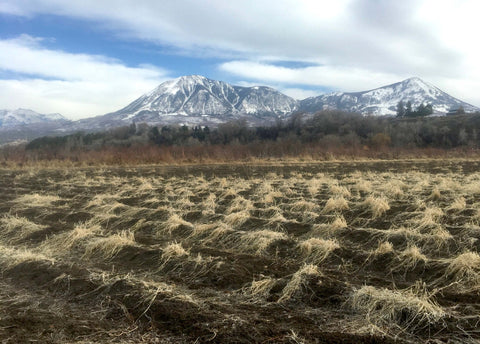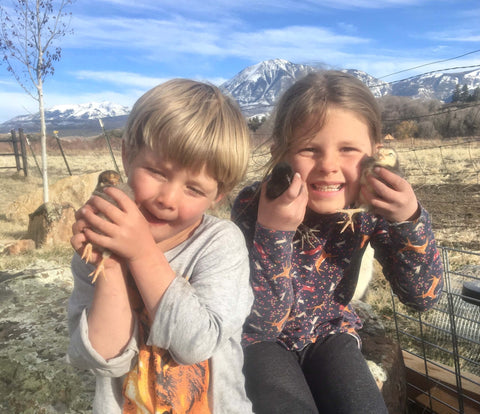It's time to put away the winter gear and strap on the work boots — it’s springtime on the farm! We chat with Farmer Jonathan about his plans for 10,000 hemp seeds, going 100% solar, and the newest members of the farm family — eight baby chicks!
Ned: Hi Jonathan! How are you and the fam? How is building your house going?
Jonathan: Hello, The family and I are good. The kids have been busy with school and activities, lots of skiing for them this winter. Lots of progress on the house as well this winter, heading into the home stretch of this major project!
Ned: What was winter like on the farm?
Jonathan: As you might imagine, winter on the farm is quiet and peaceful. Snow has covered the fields for several months and is just now thawing out. There are small projects to attend to, but this is the time that we are able to focus on other aspects of the business as well as make plans for the upcoming season.

Ned: What will spring be like on the farm?
Jonathan: Spring is a great time on the farm. Everything comes to life and excitement is in the air. Seeds are being ordered, materials are being purchased. It's time to put away the winter gear and strap on the work boots!
Ned: What will you be working on in March? What stage will the plants be at?
Jonathan: March is when we put together the plan for the season. This is when we get the greenhouse prepared to start the 10,000 seeds that will eventually go into the fields. If it's possible, we will do some field work but weather is often fickle this time of year. If we didn't plant a cover crop in the fall then this is when we will do so. The cover crop is an essential part of the organic system and adds an abundance of nutrients to the soil that will improve the hemp crop that follows as well as the overall soil health on the farm.
Ned: What will you be working on in April? What stage will the plants be at?
Jonathan: April is when things really pick up around here. In the middle of April is when we start all of the hemp plants from seed. This is done in our 1,800 square foot greenhouse where we have better control of the elements. Warm days are often followed by freezing nights and the greenhouse is essential to raise the plants in a protected environment. Although we like the idea of an automated watering system we have found the most consistent results with hand watering which happens several times a day until the end of May / beginning of June.
Ned: What will you be working on in May? What stage will the plants be at?
Jonathan: May is when we do most of the field preparation. This involves some tractor work, plowing, tilling and bed making. One thing we like to do is make big raised beds out of the loose soil. We built a tractor implement last year that creates a huge raised bed and lays the irrigation tubing in the bed at the same time. The plants really seem to like having that loose soil to grow in. This is also when we get all the irrigation infrastructure in place for the season. Here in Western Colorado we use good clean water that has come down from the mountains around us to water the crop. The water comes to us in a ditch that is diverted from the river and that we have rights to. We then harness the water in a large pond that we then pump out of and filter down so it can be run through drip irrigation or micro sprinklers. We are able to water 10,000 plants with the flip of a switch.
The plants will be in full swing at this point. There is rapid growth at this stage as they transition from seedlings to small plants. This is when we implement a feeding program for the plants as well. This basically means giving them organic plant foods to aid in their growth. The hemp plant is a heavy feeder and it's amazing to watch them respond to all the attention they get.
Usually by the end of May we are ready to put all the plants from the greenhouse out into the field. The last frost date is June 1 but if weather permits we will get out there and start planting earlier.

Ned: Anything new or exciting going on?
Jonathan: We recently got 8 baby chicks. We have always felt that animals complete the cycle on a farm. They play a beneficial role whether it be pest control, adding nutrients to the soil, or providing food for us humans. In our case it will provide a job for our kids that should keep them busy over the summer and hopefully begin the lessons in land and animal stewardship, farm skills, and responsibility. And who doesn't love farm fresh eggs?
We also recently decided to go all solar on our farm. It only makes sense to create our own energy and continue to strive towards a more sustainable future. Onward!










